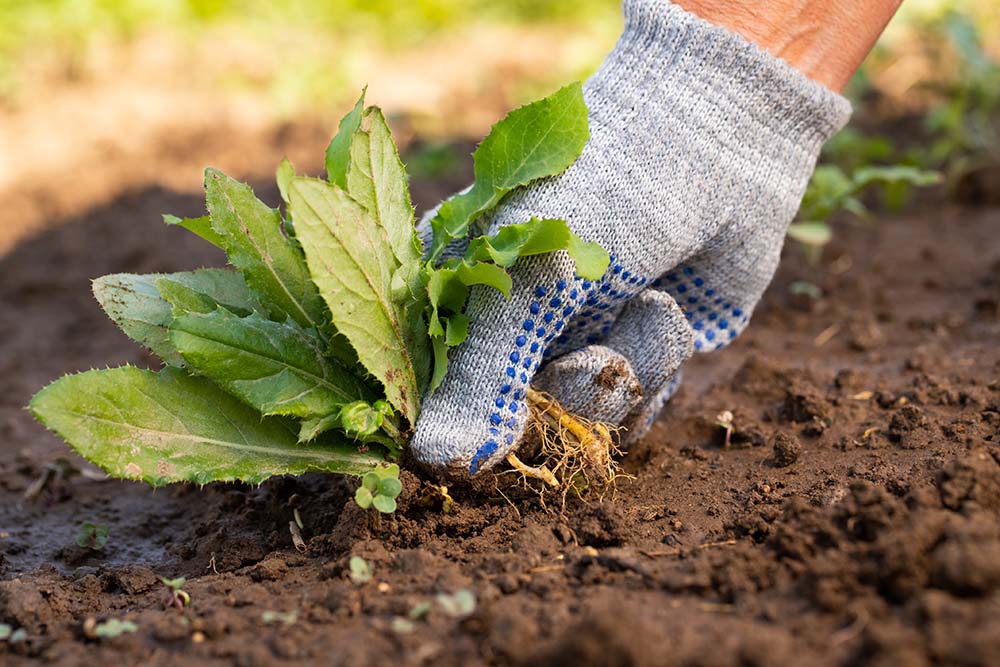Common Lawn Care Mistakes That Encourage Weed Growth
Why Your Dallas-Fort Worth Lawn Keeps Growing Weeds (And How to Stop It)
You mow regularly, water your lawn, and still the weeds keep coming back. Sound familiar? For homeowners across DFW, weed control can feel like a losing battle. The frustrating truth is that many well-intentioned lawn care practices actually create the perfect environment for weeds to thrive.
At Abracadabra Lawn Pest & Weed Control, a family-owned and operated business proudly serving the DFW area, we’ve helped thousands of homeowners transform their lawns from weed-infested to weed-free. Owned by husband and wife team Johnny and Christy Bennett, we run our business on simple principles: honesty, integrity, and exceptional results. Johnny personally trains every technician to ensure your lawn receives the highest quality care possible. Our eight-step program is specifically designed for North Texas’s unique climate challenges, from scorching summers exceeding 100 degrees to unpredictable winters and clay-heavy soils.

Mistake #1: Mowing Your Grass Too Short
Like any plant, grass needs to make food through photosynthesis. If you cut the blades of your grass too short, your grass becomes stressed. Repeated scalping causes grass to become sparse, leaving room for weeds to take over.
This is one of the most common mistakes we see across the Dallas area. Taller grass shades the soil surface, keeps the soil from drying out and reduces watering needs. Shaded soil also makes it harder for weeds to get started.
The Fix: Follow the one-third rule: never remove more than one-third of the grass height in a single mowing session. Keeping your grass at an optimal height (typically 3-4 inches) allows for deeper root growth and better resistance to heat and pests. For North Texas lawns featuring St. Augustine, Bermuda, or Zoysia grass, maintaining proper mowing height is essential for crowding out weeds naturally.
Mistake #2: Watering Incorrectly
North Texas summers are brutal, and in the hot summer months we experience here in North Texas, drought stress can greatly damage our lawns. However, both overwatering and underwatering create opportunities for weeds. Watering too often can drown the roots, promote fungal diseases, and create shallow root systems. On the other hand, underwatering can cause grass to dry out and become weak.
The Fix: Water deeply and infrequently rather than daily. Most lawns need about 1 to 1.5 inches of water per week, including rainfall. Watering early in the morning (before 10 AM) reduces evaporation and allows grass to absorb moisture efficiently. Deep watering encourages strong root systems that can outcompete weeds for moisture and nutrients.
Mistake #3: Ignoring Soil Health and Compaction
DFW’s hot summers and heavy clay soils can lead to compacted ground, which makes it harder for water, air, and nutrients to reach grass roots. This is a particular challenge in Frisco, McKinney, and Princeton, where Texas clay dominates. Compacted soil makes it difficult for water, oxygen, and nutrients to reach the root zone, leading to thinning grass, drainage problems, and stubborn bare patches. These bare patches become prime real estate for opportunistic weeds.
The Fix: Aerate your lawn annually to improve airflow and allow nutrients to penetrate the soil. Regularly test your soil’s pH levels and supplement it with the right fertilizers. At Abracadabra, we offer liquid aeration services specifically designed to combat North Texas’s challenging soil conditions.
Mistake #4: Applying Pre-Emergent Treatments at the Wrong Time
A pre-emergent herbicide will stop weeds before they germinate. Annual weeds, like crabgrass, germinate around 55 degrees no matter where you live, so it’s important to get your herbicide down when soil temps reach that point. If you apply it too late, many weeds will already have popped up.
Many homeowners watch the calendar instead of watching soil temperatures, which can vary significantly from year to year in our unpredictable North Texas climate.
The Fix: Pay attention to soil temperatures, not just calendar dates. Our eight-step program at Abracadabra includes strategically timed pre-emergent applications in early spring to prevent crabgrass and fall treatments to stop winter weeds before they establish.
Mistake #5: Neglecting Weed Control Until It’s Too Late
Just a single weed going to seed (and blowing thousands of seeds all over the lawn) can have a huge snowball effect, and a weed that spreads by runners can turn a sweet lawn into a patchy mess if allowed to grow unchecked.
The Fix: Apply pre-emergent herbicides in early spring to stop weeds before they sprout. Regularly inspect your lawn and use preventative treatments to keep infestations under control. Our continuous care plans treat your lawn every six weeks for a total of eight service treatments throughout the year, preventing weeds from ever gaining a foothold.
Ready for a Weed-Free Lawn?
Stop making the mistakes that invite weeds into your yard. Let Abracadabra Lawn Pest & Weed Control work its magic on your lawn with our proven eight-step program. Wherever you are located in the DFW area, we’re ready to transform your lawn.
Contact us today schedule your free consultation. Experience the difference that family-owned expertise makes. Your neighbors will be asking for your secret!
